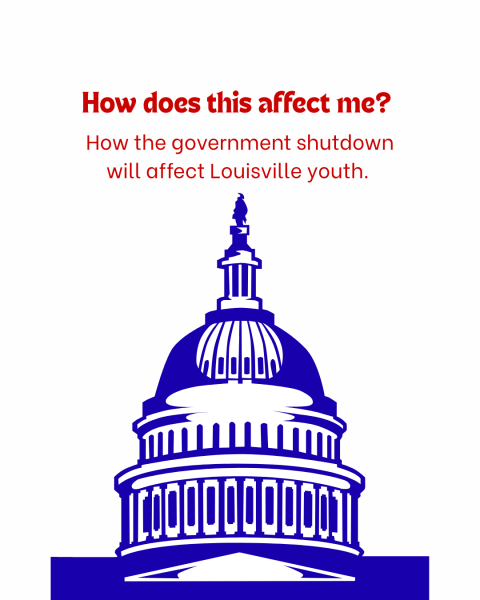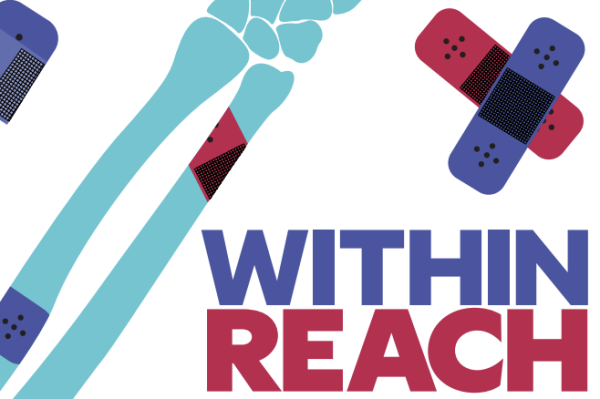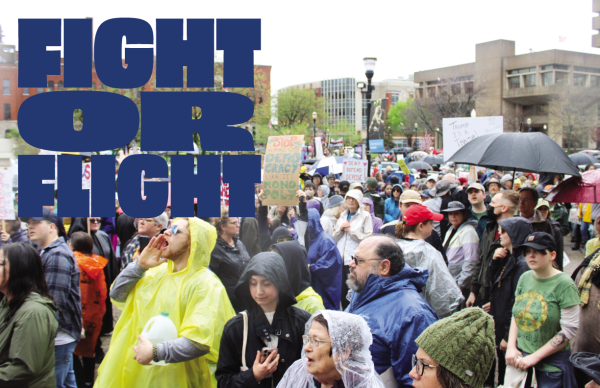1 in 12,000
Jena Quesada’s family is rooted in an unconventional story, but she’s made that story her own.
It is estimated that 360,000 people are born worldwide on any given day. So, on Dec. 23, 1980, Jena Quesada shared her birthday with hundreds of thousands of babies around the world. But, out of those third of a million, Quesada likely only shared her story with three percent of them.
Quesada’s birth was never going to be a normal one. Her mother was a teenager when a person she knew raped her, and she became pregnant.
Quesada, when describing herself, uses the term “product of rape”— an expression that describes less than one of every 12,000 births annually in the U.S. Her mother, who preferred not to be interviewed, chose to go through with her unplanned pregnancy while incapacitated by an already haunting circumstance.
“My mom has a strong sense of what is just. To her, I deserved a fair shot, and she couldn’t give it to me,” Quesada said.
Quesada grew up with her adoptive parents, Dawn and Ted Sandquist, in upstate New York. Dawn had been running an unofficial adoption service with local attorneys and other women in their church when she came upon an upcoming birth that created interesting circumstances. Another family had expressed interest in adopting a baby, but the couple was sure they wanted a boy. Casually, Dawn agreed to take the child if it happened to be a girl.
A Christmas Gift
On a chilly December night in New York, Quesada’s mother gave birth.
“I found out she was a girl on the day she was born,” Dawn said. “I forgot about saying we’d take her if she was a girl, and voilà!”
David Larkin, Quesada’s biological uncle, delivered her to Dawn and Ted Sandquist, her adoptive parents, on Christmas Day. He drove four hours to Ithaca, New York where Quesada was born, while his wife put on an unfamiliar song for the drive down. Larkin asked her who the artist was, and it just happened to be Quesada’s soon-to-be adoptive father, Ted. Larkin was the only person that knew the names of the people that were going to take in Quesada. When his wife told him the name of the Christian musician, he was taken aback by the coincidence to the point of nearly driving off the road.
“To hear my husband’s music and know that this was a good family, it was God telling him this was the right thing,” Dawn said.
Larkin brought the unnamed baby out to Dawn and Ted, who were waiting outside in the snow away from Quesada’s mother and her family. Despite the feelings of shock from adding their first girl after three boys, the beauty of the baby was overwhelming. Quesada’s eyes were glued to her on the drive home.
Quesada was quite literally a gift to the Sandquist family.
“We brought her home, put a bow on her head and put her under the tree,” Dawn said.
Quesada’s three brothers, Jason, Jon-Mark, and Jordan, weren’t entirely aware of the situation, but they understood they were getting a new baby sister for Christmas.
“We were old enough to know that my mom wasn’t pregnant,” Jon-Mark said. “There was never any hiding that Jena was adopted.”
Although she was adopted, she became a Sandquist seamlessly.
“People that didn’t know assumed she was a part of our family because she looked like us growing up,” Jordan said.
Her parents always made sure she was loved like she was born the same way her brothers were.
“I don’t think there was anyone that treated her any differently at all,” Jon-Mark said.
But Quesada was different. The story of her conception was tragic, but the happiness she would bring to so many lives proved to be the light at the end of a dark tunnel.
Hope for Help
For many women, this tunnel is lonely and never-ending. Figuring out how to raise a child can seem like an insurmountable task after already going through the trauma of rape. But there are ways to lift some of the weight. There are several services available in Louisville, like the Center for Women and Families, and throughout the state, like Kentucky Association of Sexual Assault Programs (KASAP), for rape victims and, if applicable, their children (see “1 in 5”).
Additionally, for women like Quesada and her mom, KY Senate Bill 108 of the 2014 Kentucky legislative session can provide protection from the assailants. Signed into law that April, this legislation prohibits the father of a product of rape from obtaining custody of the child. Sara Beth Gregory, one of the bill’s sponsors, explained that, unfortunately, this law is applied more often than people realize. The sponsors of the law looked to similar legislation in other states and formed a draft that would prevent revictimization of the mother and the child.
It also recognizes that every situation is different. A clause located near the end of the law cedes the potential of custody to the father only if the mother allows it. While Gregory believes that it has given many women peace with their children, she regrets the need for it at all.
However, there are still states that do not offer this kind of legal protection for rape victims and their children. New Mexico, Wyoming, North Dakota, Minnesota, Mississippi, and Alabama are, as of 2019, the six remaining states that allow rapists to obtain custody.
Maryland was part of this group until it passed the Rape Survivor Family Protection Act in February of 2018. This bill, which unanimously passed through Maryland’s General Assembly, gives mothers the right to “terminate the parental rights of an individual convicted of or found by clear and convincing evidence of guilt” according to CNN. Similar to Kentucky’s law, victims in Maryland now have the power to prevent or end revictimization of themselves and their children.
Not Her Choice
“I’ve heard people say, ‘Ew, who would want a rape baby?’” Quesada said. “When people say that, they don’t put a face to the name.”
When it comes to protecting children born of rape, this revictimization is a major problem. Being a product of rape is an identifier. Quesada can’t ignore it; there’s always someone to remind her that, to some, she is less than a life.
As tears welled in her eyes, she described her struggles with societal judgment of “rape babies,” who are often dismissed as an unnecessary hardship. Quesada continues to wrestle with why her life is labeled as less valuable than others.
The unfortunate situation that led to Quesada’s birth was not her choice, just like any other pregnancy, but she feels her life as a child borne of rape is devalued.
No matter how you may see her, Quesada is truly one in a million — or, in fact, one of about 12,000 products of rape each year, according to a 1996 Medical University of South Carolina study. This is out of only 32,000 pregnancies from rape (0.5 percent of rapes result in pregnancy) of the nearly 4 million annual live births in the U.S. The likelihood of being raped and becoming pregnant is already rare, but keeping the baby is even less common. To Quesada, those lives are just as important as any other.
Learning Her Story
Quesada was always passionate about the polarizing issue that shaped her life, but she learned more about her situation when Dawn pushed her to reach out to her birth mother. She met her birth mother when she was 27, and found out that her story’s beginning was a little different than most.
“She asked me if I wanted to know and I told her I did,” Quesada said. “She said that he was a ‘bad boy,’ and she was young and naive. She defined it as date rape, but they weren’t really dating.”
It was difficult for Quesada to find out that her father raped her mother and that she was conceived in such an unimaginable situation.
She said she thought to herself, “I am so close to [my mother’s] family, but do I want to meet him too? Was I like him at all?”
And in fact, she is.
She met her biological father for the first time in January of 2017 at a truck stop in Louisville.
“I certainly look more like him than [my mother],” Quesada said, “I struggled for a while.”
Despite all the thoughts she had about her father, she decided it was best for her own mental health to forgive.
“I love him for who he is,” Quesada said, “and I know we won’t ever be close, but everyone deserves a second chance. I pray for him.”
As ironic as it seems, Quesada felt grateful to be able to blend in with her dad’s side. She values each part of her history, even if her maternal family often disregards her father.
Call to Action
Because of her personal experiences, Quesada has dedicated her life to working with women considering abortion. She works with organizations like And Then There Were None and 40 Days For Life that offer counseling and services for women considering abortion as well as abortion workers. She also attends the March for Life, an annual event in Washington D.C. where people can demonstrate support for an end to abortion.
“I feel like it’s my job, it’s my calling, to be a face for people who don’t get stood up for,” she said.
Quesada always felt strongly about the polarizing issue of abortion, but when she learned her story, it strengthened her mindset.
“I think when you are the exact circumstance that people describe to use to validate dehumanizing people, then it’s your job to speak up for people who are dehumanized,” Quesada said.
Quesada disagrees with abortion as an option, but many disagree. Rape victims who become pregnant face a unique predicament when deciding whether or not to have and keep the child, find a family to adopt the child, or have an abortion.
The thought of having a child from this scarring experience can be frightening for various reasons. The victim may feel like going through with the pregnancy will create an invisible tie to their rapist. Furthermore, the victim may not have the resources to have a child at this point in their life. They may fear that they won’t connect with the baby knowing that a part of their baby is the result of a horrifying event of their life.
These circumstances can compound the trauma of rape for victims. This can lead to, in extreme cases, Complex Post-Traumatic Stress Disorder (CPTSD) — the psychological effects of overlapping traumatic experiences.
Myths surrounding human conception have also skewed the public’s understanding of the possibility of pregnancy resulting from rape. U.S Rep. Todd Akin from Missouri made national headlines in 2012 after discussing what he calls “legitimate rape” — the false idea that “real” rape victims cannot become pregnant because a woman’s body can miraculously prevent pregnancy if she was raped. More recently, in 2016, Idaho House Representative Pete Nielsen repeated the same myth that “due to the trauma of the incident” a woman cannot become pregnant.
Contrary to this, studies show women are actually more likely to get pregnant following rape. A 1995-1996 joint study from the National Institute of Justice, the National Center for Injury Prevention and Control, and the Centers for Disease Control found that women who are raped have an increased birth rate (8%) as compared to the chance of getting pregnant during the average menstrual cycle
(only about 3%).
Other experts are also coming forward to clear the confusion. Hal Herzog, a professor of psychology at Western Carolina University, directly countered Akin’s accusations, writing that his “first mistake was linguistic. The term ‘legitimate rape’ is an oxymoron. ‘Legitimate rape’ does not exist. End of story.” Herzog also claims that Akin was misled to believe that a woman can just shut down her body by anti-abortion doctors and physicians, namely Jack C. Wilke, a past president of the National Right to Life Committee.
Minors are especially susceptible to pregnancy from rape. In a 1995 Guttmacher Institute study, researchers concluded that the fathers of children are more likely to be older than the mother when the mother is a teenager. In 1988, over 80 percent of girls ages 15-17 became pregnant with the baby of an older man, ages ranging from 18 to over 40. While the majority of these fathers are in the age range of 18 to 24, girls under 16 in Kentucky cannot legally consent to having sex with an adult.
The options for teen girls, unlike legal adults, are limited. In Kentucky, unmarried minors cannot get an abortion without proof of emancipation or parental consent unless an emergency occurs. Adoption is always an option, but girls may find the entire situation too overwhelming to navigate.
After women make their decision, resources for post-abortive and post-partum rape victims are scarce. There are many general support groups and counseling options for women who are raped, but, because it is so rare, no specific group seems to exist solely for pregnant rape victims or their children. This would be crucial in helping women like Quesada’s mother go through this uniquely traumatizing course of events.
Jena’s New Company
You could hear the laughter from Quesada’s room a mile away in Norton Women’s and Children’s Hospital, filled with family and friends who filled the beige walls to welcome Quesada’s first baby.
“My doctor laughed about all of the people in the room,” Quesada said, “It was like a party.”
After 28 hours of labor, a cesarean section, and much anticipation, Quesada introduced everyone to baby Leo, born on Jan. 15, 2008.
While her story wasn’t quite like her mother’s, each brought a child into a loving family. But baby Leo marked a new branch on Quesada’s family tree. Simply put, Quesada’s birth in the cold December symbolized the hardships she would face in her life to bring Leo into the world. But it was also the bloom of a new beginning, the start to her life as a mother
and a survivor. •
Donations are collected through The Publishers, duPont Manual High School's booster club for J&C. On The Record relies completely on sponsorships, advertisements, and donations to produce and distribute each issue. Please consider donating to our cause, and helping the student journalists of OTR amplify youth voices for years to come.







